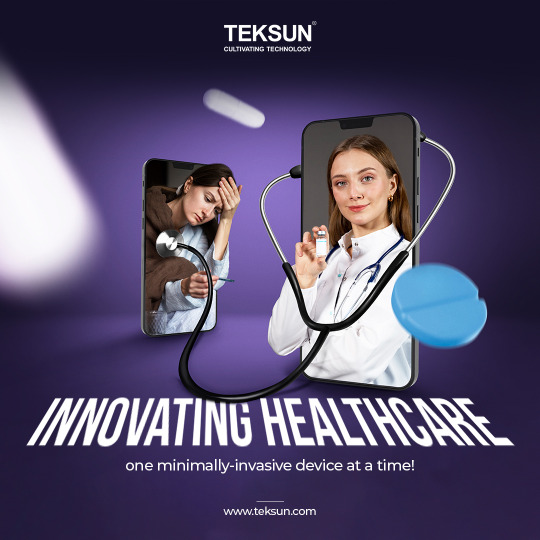#Healthcare Automation
Explore tagged Tumblr posts
Text

The Role of Robotic process Automation in Healthcare
RPA plays a transformative role in healthcare as it enables automation processes, streamlines administrative tasks, improves patient care, and reduces operational costs. It automates the repetitive entry of data, scheduling appointments, billing, and other activities, thereby allowing the healthcare professionals to be more engaged with patients. Data is also accurate and adheres to compliance, which is critical in healthcare. USM Business Systems stands out as a top mobile app development company for firms looking to implement RPA within their programs.
USM BUSINESS SYSTEMS
Services:
Mobile app development
Artificial Intelligence
Machine Learning
Android app development
RPA
Big data
HR Management
Workforce Management
IoT
IOS App Development
Cloud Migration
#RPA in healthcare#robotic process automation#healthcare automation#improve patient care#automate administrative tasks#healthcare efficiency#data accuracy in healthcare
0 notes
Text
Revolutionizing Healthcare with Remote Healthcare Assistants
The healthcare landscape is rapidly evolving, propelled by technological advancements and the rising demand for more efficient patient care. One of the most significant changes is the increasing reliance on remote support. In this context, remote healthcare assistants emerge as game-changers, offering a blend of expertise and technology to streamline healthcare services. This guide will explore…
#digital healthcare solutions#healthcare automation#healthcare industry#Healthcare Technology#innovation in healthcare#medical assistance#medical professionals support#patient care#remote healthcare assistants#remote patient monitoring#telehealth services#Telemedicine#virtual healthcare support#virtual medical care
0 notes
Text
Automated Healthcare System for Better Care Delivery
In recent years, the healthcare industry has witnessed a profound transformation through the integration of automated systems. These advancements, collectively known as healthcare automation solutions, have revolutionized care delivery by streamlining processes, enhancing efficiency, and improving patient outcomes.
Healthcare automation encompasses a wide range of technologies and innovations designed to automate routine tasks, optimize workflows, and facilitate better coordination among healthcare professionals. One of the key benefits of automation in healthcare is its ability to reduce human error and improve the accuracy of medical procedures. Automated systems can perform tasks such as medication dispensing, patient monitoring, and diagnostic testing with precision and reliability, thereby minimizing the risks associated with manual intervention.
Furthermore, automated health systems contribute significantly to enhancing patient care experiences. By automating administrative tasks such as appointment scheduling, billing, and medical record management, healthcare providers can allocate more time and resources to direct patient care. This not only improves patient satisfaction but also ensures that healthcare professionals can focus on delivering personalized and compassionate care to their patients.
Moreover, healthcare automation solutions play a crucial role in enhancing clinical decision-making through tools like Clinical Decision Support Systems (CDSS). These systems analyze patient data in real-time, provide evidence-based recommendations, and alert healthcare providers to potential issues or opportunities for intervention. By integrating medical knowledge and predictive analytics, CDSS helps optimize treatment plans, reduce unnecessary procedures, and improve overall clinical outcomes.
Another significant advantage of automated health systems lies in their ability to promote operational efficiency within healthcare facilities. Automated workflows streamline processes across departments, from inventory management in hospitals to automated billing and claims processing in healthcare insurance companies. This efficiency not only reduces operational costs but also ensures smoother coordination and communication among healthcare teams.
Looking forward, the future of healthcare automation holds promise for further innovation and integration of emerging technologies such as artificial intelligence (AI) and robotics. These advancements will likely lead to more sophisticated automated systems capable of predictive modeling, personalized medicine, and remote patient monitoring.
In conclusion, healthcare automation solutions represent a transformative shift in the way healthcare services are delivered and managed. By leveraging automation technologies, healthcare organizations can achieve higher standards of efficiency, accuracy, and patient-centered care. As these technologies continue to evolve, they will undoubtedly play a pivotal role in shaping the future of healthcare delivery worldwide.
#healthcare automation#healthcare automation solutions#medical automation#automation in healthcare#automation healthcare#automated health system#automated healthcare solutions#automated health systems
0 notes
Text
#Hand Hygiene Monitoring#Hand Hygiene Reporting#Hand Hygiene Solutions#Hand Sanitizing#Hand Sanitization Monitoring#Dispensing Solutions#Infection Prevention#Infection Control#HAI Prevention#Patient Safety#Clinical Staff Safety#Clinical Operations#Healthcare Automation#Healthcare IT#Behavioral Change Management#Healthcare Compliance Management#Healthcare Technology#SaaS#Agile Technology Solutions
0 notes
Text
Smarter Healthcare Management with ERPNext Services by Sigzen Technologies
In today’s fast-changing healthcare world, it’s really important to manage things well so patients get good care and everything runs smoothly. That’s where ERPNext Healthcare Solutions comes in. It’s like a super helpful computer program for hospitals and healthcare places. It helps them do things better and faster. Sigzen Technologies is the company behind this software. They’re really good at…

View On WordPress
0 notes
Text

Unlock the Power of Process Automation in Healthcare - Ebook
Discover how automation can transform your healthcare operations, enhance patient care, and liberate your staff from mundane tasks.
0 notes
Text

In healthcare, innovation will come from the value of AI solutions and their capacity for processing massive data sets that are far beyond the scope of human ability. To know more, visit @ https://teksun.com/solution/iot-air-conditioner-control-system/
#Artificial Intelligence#Healthcare Innovation#Medical Imaging#Electronic Health Records#Predictive Analytics#Machine Learning#Big Data#Wearable Technology#Healthcare Automation
0 notes
Text
Evil CIA agent explains why they had to destabilize Cuba and other countries.
#Cuba#socialism#anarcho communism#fully automated luxury gay space communism#communism#late stage capitalism#capitalism#Luigi#luigi mangione#brian thompson#united healthcare#uhc ceo#uhc shooter#uhc assassin#assassin's creed#CIA#FBI#systemic oppression#terrorism
20 notes
·
View notes
Text
There's something inherently funny to me about my only popular posts I have ever had on tumblr (in spite of having been posting here for half of my 32 years on earth,) being about the dead bastard CEO and the perfect man who may have killed him, because for two beautiful weeks, the Overton window shifted to include my fringe extremism for the first and probably only time in my life. I was a babbling lunatic one day, then suddenly everyone and their moms and grandmas agreed with me and kinda hoped it would escalate to the violent deaths of every person who has ever hoarded wealth and destroyed the world and the people who live there to do so.
This is similar to what it felt like being a "politically active 14 year old" and loving Barack Obama in 2008 bc Fox News said he was a Marxist lmao
I wish you guys were "thousands must die but we actually have the list curated by Forbes 12 times a year and the NYT gives us the other names when they write op-eds" people with me all the time. I wish we were all bloodthirsty together forever ❤️ I wish you all actually wanted to get busy and didn't just get riled up for an average meme cycle time period and really wanted to rend the very flesh from the bones of the very human monsters who torture and trap us in their disgusting games and scams and evils. I wish you meant it!
But it was cute and fun and charming all the same, just to feel the warmth of community as you wrapped your digital arms around me and saw me as normal for a second. Thank you.
#luigi mangione#united healthcare#ceo assassination#the claims adjuster#uhc ceo#communism#fully automated luxury gay space communism#violence#violent revolution#Haiti was the only way#it must be done#nothing ever happens
8 notes
·
View notes
Text

The Impact of Artificial Intelligence in Healthcare
AI is revolutionizing healthcare from inside out by improving accuracy in diagnosis, developing personalized treatment plans, and automating administrative tasks. The enormous amount of data feeds AI algorithms into giving better support in decision-making and patient outcomes. A healthcare provider who wants to implement this technology would require a mobile application development company that could be well versed in handling such an endeavor. Among the best companies for mobile app development that could provide such solutions with customized AI integration into healthcare applications is USM Business Systems. Embracing the power of AI would help bring much-needed innovation to the healthcare industry and, in the long run, to greatly benefit patient care.
USM BUSINESS SYSTEMS
Services:
Mobile app development
Artificial Intelligence
Machine Learning
Android app development
RPA
Big data
HR Management
Workforce Management
IoT
IOS App Development
Cloud Migration
#AI healthcare applications#healthcare automation#machine learning in healthcare#AI-driven healthcare#artificial intelligence#healthcare technology#AI in healthcare
0 notes
Text
Get Chatbot service for business with APIWAA
In today’s fast-paced digital world, businesses are constantly looking for innovative ways to connect with their customers more effectively and efficiently. One of the most powerful tools available to achieve this is the APIWAA. By integrating APIWAA into your business operations, you can enhance communication, improve customer service, and drive engagement to new heights.
What is APIWAA?
APIWAA is a powerful communication tool that allows businesses to integrate WhatsApp messaging into their existing systems and workflows. Unlike the standard WhatsApp Business app, the API is designed for medium to large businesses, offering scalability and a range of advanced features that streamline customer interactions. It provides a programmable interface that enables businesses to send and receive messages, automate responses, and manage communication at scale.

1.Enhanced Customer Communication: With APIWAA, businesses can offer real-time customer support and engagement. The ability to send instant replies to customer queries, provide order updates, and share promotional content ensures a smooth and efficient communication process. This level of responsiveness helps build trust and loyalty among customers.
2.Automation and scalability: The APIWAA allows for the automation of routine tasks, such as sending appointment reminders, order confirmations, and personalized messages based on customer interactions. This not only saves time but also ensures consistent and accurate communication. The API’s scalability means it can handle a large volume of messages simultaneously, making it ideal for businesses of all sizes.
3.Rich Media support: Unlike traditional SMS, APIWAA supports rich media messages, including images, videos, documents, and interactive buttons. This capability allows businesses to create engaging and visually appealing messages that can capture the attention of their audience more effectively.
4.Secure and Reliable: Security is a top priority for APIWAA. The platform uses end-to-end encryption to protect messages and data, ensuring that customer information remains private and secure. This level of security helps businesses comply with data protection regulations and provides peace of mind to both the business and its customers.
Use Cases: Customer Support: Provide instant responses to customer inquiries, resolve issues quickly, and offer support 24/7.
Marketing Campaigns: Send targeted promotions, offers, and updates directly to customers’ WhatsApp accounts, ensuring high open and engagement rates.
Order Notifications: Keep customers informed with real-time updates on order status, shipping details, and delivery confirmations.
Appointment Reminders: Automate appointment reminders to reduce no-shows and improve customer experience.
Conclusion: The APIWAA is a game-changer for businesses looking to enhance their communication strategy. By integrating this powerful tool, businesses can improve customer engagement, streamline operations, and ultimately drive growth. Whether you’re a small startup or a large enterprise, the APIWAA offers the flexibility and functionality needed to stay ahead in today’s competitive market. Embrace the future of communication with APIWAA and unlock your business’s full potential.
#whatsapp api#api#whatsapp marketing#apiwaa#whatsapp chatbot#healthcare chatbots market#whatsapp automation
3 notes
·
View notes
Text
Revolutionizing Healthcare: The Transformative Impact of Automated Healthcare Systems
In today's fast-paced world, the integration of automation in healthcare has emerged as a game-changer, revolutionizing the delivery of superior care. Automated healthcare systems, powered by cutting-edge technology, are reshaping traditional healthcare paradigms, offering unparalleled efficiency, accuracy, and patient-centered services. This article explores the pivotal role of automation in healthcare, delving into the significance of automated health systems and the transformative solutions they provide.
Automation in healthcare is synonymous with innovation, encompassing a wide array of technologies and processes aimed at streamlining workflows, optimizing resources, and improving patient outcomes. From administrative tasks to clinical operations, automation permeates every facet of healthcare delivery, heralding a new era of efficiency and effectiveness.
At the heart of automated healthcare systems lies the quest for efficiency. By automating routine administrative tasks such as appointment scheduling, billing, and documentation, healthcare providers can redirect their focus towards delivering high-quality patient care. This streamlined workflow not only reduces administrative burdens but also minimizes errors, enhances accuracy, and accelerates service delivery, thereby maximizing operational efficiency.
Furthermore, healthcare automation solutions empower healthcare professionals with real-time data analytics and decision support tools. Through advanced algorithms and predictive analytics, these systems can analyze vast amounts of data, identify trends, and generate actionable insights to guide clinical decision-making. By leveraging these insights, healthcare providers can offer personalized care plans, predict and prevent adverse events, and optimize treatment outcomes, thereby enhancing the quality of patient care.
Patient engagement and satisfaction are also significantly enhanced through automated healthcare systems. Interactive patient portals and mobile applications enable individuals to access their health records, communicate with healthcare providers, and actively participate in their care management. This increased connectivity fosters greater patient empowerment, improves adherence to treatment plans, and strengthens the patient-provider relationship, ultimately leading to better health outcomes.
Moreover, automation in healthcare extends beyond administrative and clinical tasks to encompass innovative solutions such as robotic-assisted surgeries and telemedicine platforms. Robotic-assisted surgeries leverage precision robotics and artificial intelligence to enhance surgical precision, reduce invasiveness, and shorten recovery times, thereby improving patient outcomes and safety. Similarly, telemedicine platforms enable remote consultations, virtual monitoring, and telehealth interventions, expanding access to care, particularly in underserved areas or during emergencies.
In addition to improving patient care, automated healthcare systems also play a crucial role in optimizing resource utilization and cost-effectiveness. Automated supply chain management systems ensure efficient procurement, inventory management, and distribution of medical supplies and pharmaceuticals, minimizing shortages and reducing costs. Similarly, automated billing and revenue cycle management systems streamline financial processes, improve revenue capture, and enhance financial sustainability for healthcare organizations.
In conclusion, automation in healthcare represent a paradigm shift in the delivery of healthcare services, offering transformative solutions to address the evolving needs of patients, providers, and healthcare organizations. By harnessing the power of automation, healthcare stakeholders can overcome operational challenges, enhance clinical outcomes, and deliver superior care experiences. As automation continues to evolve, its integration into healthcare will undoubtedly shape the future of medicine, paving the way for a more efficient, accessible, and patient-centric healthcare ecosystem.
#healthcare automation#healthcare automation solutions#medical automation#automation in healthcare#automation healthcare#automated health system#automated healthcare solutions#automated health systems
0 notes
Text
#healthcare workflows#healthcare trends#ai in healthcare#healthcare automation#artificial intelligence
0 notes
Text
hello american person would you like to pay for your healthcare ?? i know it was a run of the mill visit to make sure you didn't break your ankle but we're still going to charge you $50 dollars upfront to make sure you can afford to breathe our air and then bill you by email later. oh sorry your phone number is wrong in our system? that's ok you can just change it by accessing your patient portal :) you have a password and we have your email but you need a security code to get in :) we'll send it to your phone number! oh what's that? you can't get into anything? you'd like to have our email to speak with a real representative. Choke and Die. That'll be $1000 dollars
#i didn't break the ankle it was just sprained#healthcare#injury#american healthcare#the automation of everything is the death of the human spirit#the systems are built like this to keep the working class down and i'm so serious about that#Athena Health please just let me access my patient portal and pay my balance
2 notes
·
View notes
